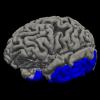27 July 2021
Keystone Bio Advances a More Complete Explanation of Porphyromonas Gingivalis Toxic Virulence Factors
Keystone Bio presents a detailed review of the literature show incomplete human and animal model study design(s) for the “local” gingipains AD brain model, but rather using new data and existing publication(s) – support a “peripheral” model of Pg blood-transported toxic virulence factors/OMVs as the major delivery mechanism into the brain. This can now be integrated into a more unifying “concept” and explanation for the “infection hypothesis” for Alzheimer’s disease (AD) and other dementia-related disease(s).
12 July 2021
Digital Pens Provide New Insight into Cognitive Testing Results
During neuropsychological assessments, participants complete tasks designed to study memory and thinking. Based on their performance, the participants receive a score that researchers use to evaluate how well specific domains of their cognition are functioning. The study found that the use of a digital pen during cognitive assessments allows researchers to identify patterns of test performance that correlate with different measures of cognitive and physical function.
22 June 2021
TV Ads for Prescription Drugs Linked to Higher Utilization Rates Among Seniors
The US is one of the only nations in the world that allows pharmaceutical companies to advertise directly to patients: now, TV ads have been linked with higher utilization rates for certain prescription drugs, especially among older patients. This is according to a study published in JAD and authored by Professor Robin Feldman of the University of California Hastings College of Law.
22 June 2021
Exposure to Air Pollution Increases Risk for Neurodegeneration
A new book in the JAD book series Advances in Alzheimer's Disease links elevated air pollution exposure to an increased risk of Alzheimer’s disease and other neurodegenerative disorders, with early signs of disease found even in toddlers and young adults with sustained high exposure.
18 June 2021
Depression, Tau Deposits Seen in Subset of Middle-Aged Persons
Middle-aged people with depressive symptoms who carry a genetic variation called apolipoprotein (APOE) ε4 may be more at risk to develop tau protein accumulations in the brain’s emotion- and memory-controlling regions, a new study by researchers from The University of Texas Health Science Center at San Antonio and collaborating institutions suggests.
11 May 2021
Meditative Practice and Spiritual Wellbeing May Preserve Cognitive Function in Aging
A new review in JAD examines research that finds spiritual fitness, a new concept in medicine that centers on psychological and spiritual wellbeing, and Kirtan Kriya, a simple 12-minute meditative practice, may reduce multiple risk factors for Alzheimer's disease.
10 May 2021
COVID-19 Lockdown Increases Depression in Patients with Alzheimer’s Disease: Is This Backed by Research?
The lockdown, as implemented to cope with the COVID-19 pandemic, has drastically changed our everyday lives. Patients with Alzheimer’s disease, especially those who live in retirement homes, are not indifferent to the dramatic impact of the lockdown on social interactions.
10 May 2021
New Study Reveals an Association Between the Presence of Certain Infections and Later Development of Alzheimer’s Disease
A large-scale population-based study led by Dr. Paul Brassard, of the Lady Davis Institute at the Jewish General Hospital, discovered that there is an association between infectious disease burden and the risk of Alzheimer’s disease.
27 April 2021
The Greener the Neighborhood, the Lower Risk of Alzheimer’s Disease and Dementias
A new University of Miami Miller School of Medicine-led study examined the relationship of neighborhood greenness, such as trees, shrubs, or grass, to Alzheimer’s disease, Non-Alzheimer’s dementia, and Alzheimer’s disease and related dementia. The study found that a greater presence of neighborhood greenness was associated with a lower prevalence of Alzheimer’s disease by 20% and non-Alzheimer's disease by 11%.
27 April 2021
Chronic Pain and Other Life Experiences May Contribute to Brain Matter Loss
A new University of Florida study of non-Hispanic Black and non-Hispanic white adults links chronic knee pain and key demographic factors to differences in areas of the brain tied to memory. Participants who reported higher stages of pain and lower levels of income and education and less access to health insurance had thinner gray matter in these regions than those also experiencing higher stages of pain but who reported higher levels of income, education and greater access to health insurance.
















